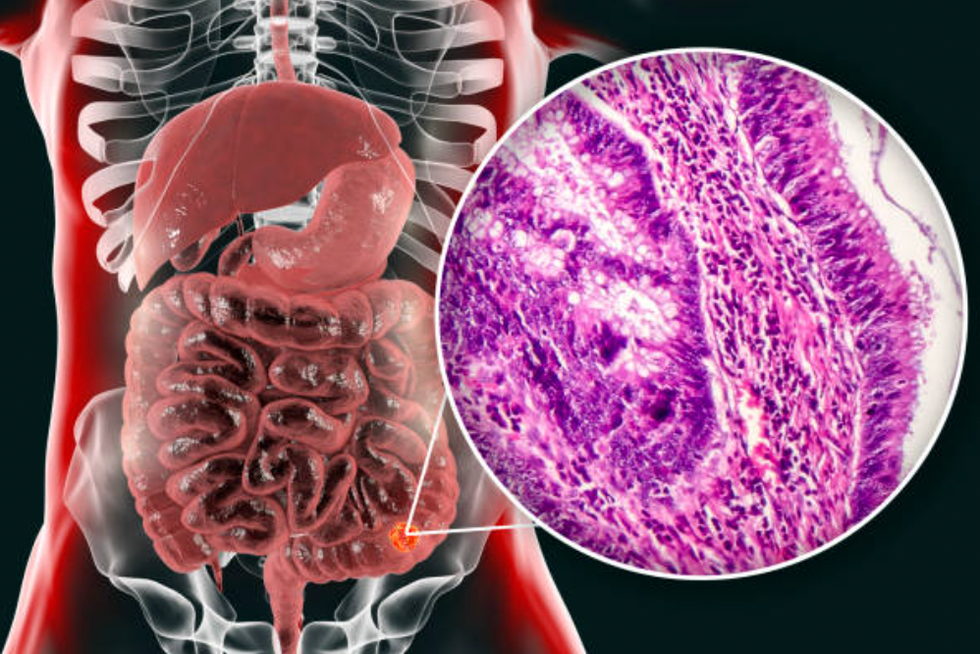Combination of two immunotherapy drugs found to shrink tumours in three out of five bowel cancer patients
Getty Images
- Combination of two immunotherapy drugs found to shrink tumours
- Ir could be used to treat the most common form of bowel cancer
- Both drugs work by triggering the body’s immune system to attack cancer cells
Don't Miss
Most Read
Trending on GB News
Scientists are hailing a new dawn in the treatment of bowel cancer after finding a combination of drugs had shrunk tumours in the majority of patients.
Botensilimab and balstilimab could “offer new hope” for those diagnosed with a form of the deadly disease that has previously not responded to immunotherapy, researchers from Anglia Ruskin University said.
Both drugs work by triggering the body’s immune system to attack cancer cells.
Describing the treatment as “potentially game changing”, the team said it hopes authorities in the UK will be “able to move quickly” in approving its use.

How the researchers gathered their findings
The researchers followed 101 patients in the US who were diagnosed with microsatellite stable metastatic colorectal cancer (MSS mCRC), the most common type of bowel cancer.
After six months, tumours were shown to shrink or remain stable in 61 percent of the patients.
The most common side-effects were diarrhoea and fatigue, the researchers said.
Until now, immunotherapy has only been shown to work on patients with another type of bowel cancer known as specific mismatch repair deficient (dMMR) tumours, which is rarer.
Close to 43,000 people are diagnosed with bowel cancer every year in the UK, with around 85 percent classed as microsatellite stable (MSS).
Justin Stebbing, professor of biomedical sciences at Anglia Ruskin University, said: “These results are incredibly exciting.
“Colorectal or bowel cancer is one of the most common forms of cancer worldwide and this is the first time there has been convincing evidence that immunotherapy can work in all forms of colorectal tumours, so this is potentially game changing.
“This is now progressing into later phase clinical trials and we hope the FDA in the United States approve its use very soon.
“And because this is such an important area, affecting so many people, we hope authorities in the UK are also able to move quickly.”
LATEST DEVELOPMENTS
 Symptoms of bowel cancer include changes in bowel movements and tummy pain GETTY IMAGES
Symptoms of bowel cancer include changes in bowel movements and tummy pain GETTY IMAGESDoctor Andrea Bullock, assistant professor in medicine at Beth Israel Deaconess Medical Centre in the US, said: “This study sheds light on the potential of the BOT/BAL combination to treat microsatellite stable metastatic colorectal cancer, the most common form of colorectal cancer which has historically not responded to immunotherapy, and we hope our results will offer new hope for those diagnosed.”
The research is published in the journal Nature Medicine.
Commenting on the study, Lisa Wilde, director of research, policy, and influencing at Bowel Cancer UK said: “This trial is still at a very early stage but does show exciting promise to extend much-needed treatment options for those whose cancer would previously have been resistant to immunotherapy.
“We will continue to follow with interest.”








